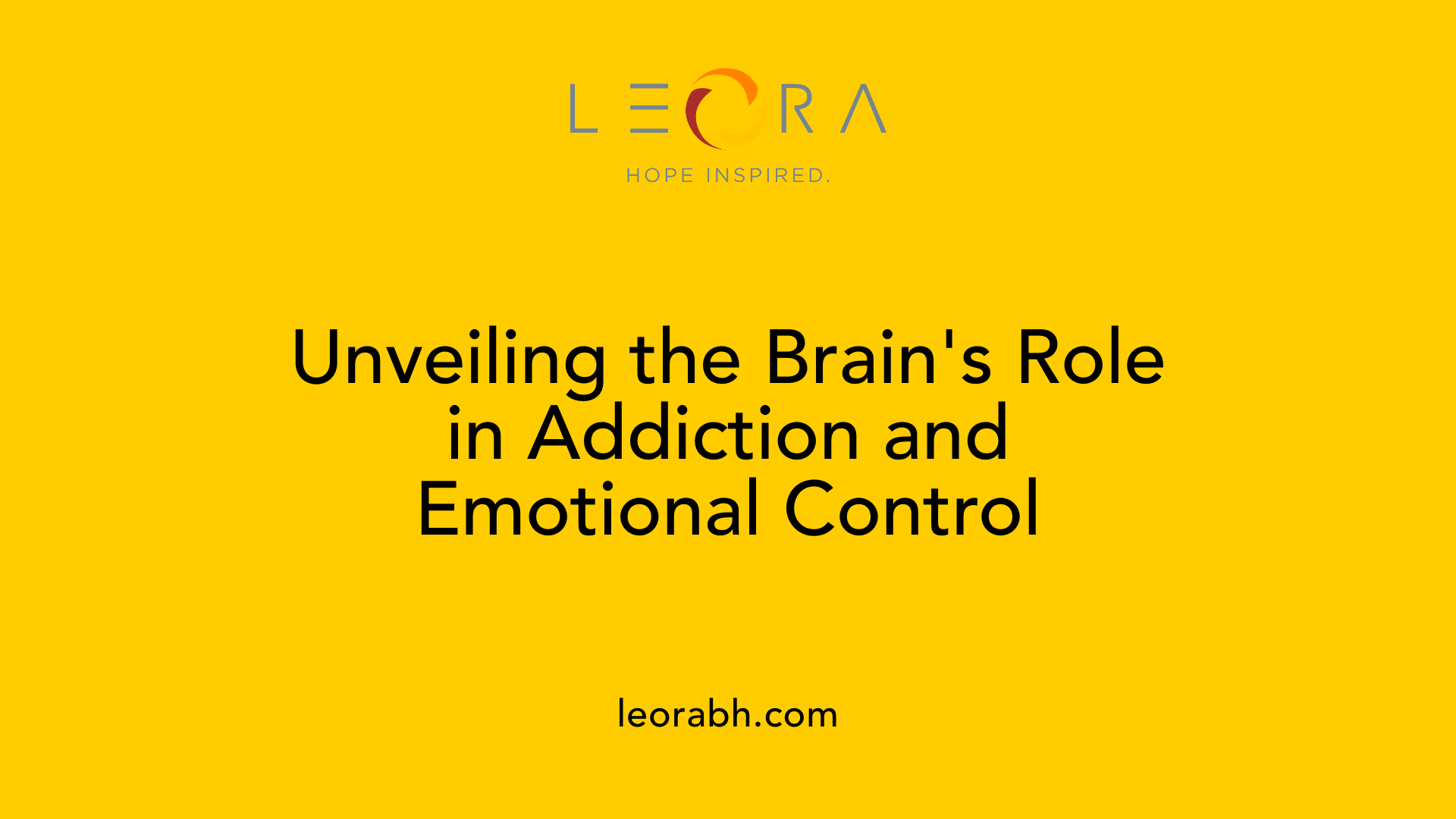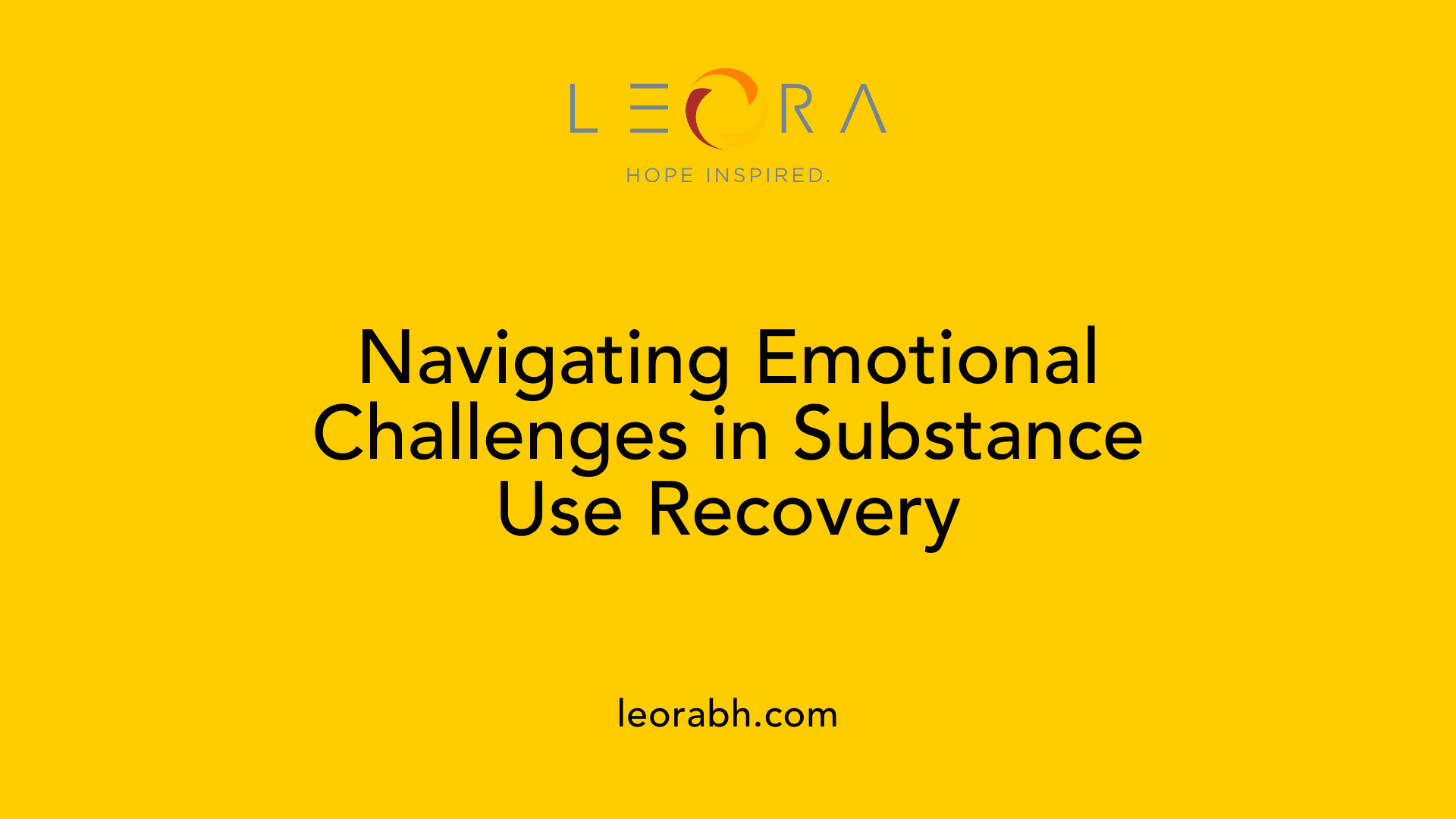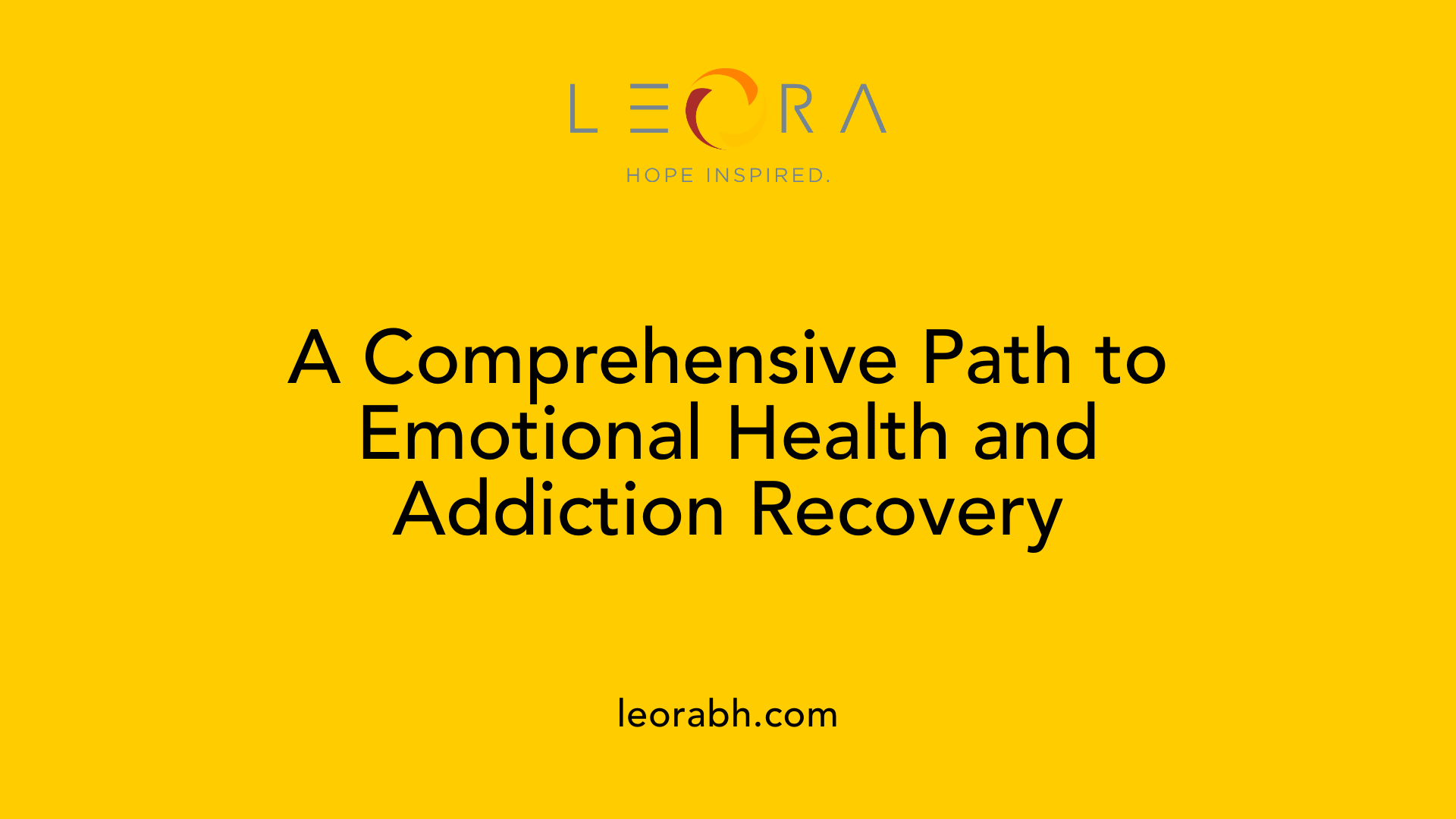The Impact of Substance Use on Emotional Development
Understanding the Complex Interplay Between Substance Use and Emotional Growth
Introduction
Substance use intricately affects emotional development across all age groups, influencing neurological, psychological, and social domains. Its impact is profound, especially during critical developmental periods, and extends to family systems. This comprehensive review explores how substance use disrupts emotional maturation, the neurobiological mechanisms involved, and the cascading effects on families and society.
Neurobiological Foundations of Substance Dependence and Emotional Dysregulation

How does parental substance use influence the emotional development of children?
Parental substance use greatly affects children’s emotional growth by creating an environment marked by instability, neglect, and chaos. Such environments often lead to chronic stress and trauma, impairing healthy attachment and emotional regulation. Children may develop feelings of fear, shame, guilt, and loneliness, which can hinder their ability to trust and form secure emotional bonds.
These adverse conditions are associated with increased risks of internalizing problems like depression and anxiety, as well as externalizing behaviors such as conduct issues and aggression. Parental addiction can also lead to role reversal, where children assume responsibilities beyond their age, further disrupting their emotional development.
Supporting these children involves providing stable caregiving, therapy, and community resources to help repair attachment issues and foster emotional resilience. Early intervention can mitigate long-term emotional and behavioral problems and break cycles of substance abuse across generations.
How does substance use affect emotional growth during developmental stages?
Substance use during critical developmental windows interferes with the normal maturation of brain regions involved in emotion regulation and decision-making. Young brains, especially during adolescence, are particularly vulnerable because their prefrontal cortex and reward pathways are still developing.
Drugs can cause lasting neurobiological changes, impairing impulse control, emotional stability, and stress response. This disruption often results in emotional dysregulation, mood swings, and increased susceptibility to mental health disorders. Besides neurobiological effects, substance-related adverse experiences like neglect or trauma further impede healthy emotional growth.
As a consequence, individuals who begin substance use early may exhibit behaviors characteristic of emotional immaturity, such as impulsivity and difficulty managing emotions, which persist into adulthood. These disruptions hinder social interactions and increase mental health risks.
What is the impact of substance use disorders on family dynamics and child development?
SUDs profoundly disturb family relationships, creating an atmosphere of secrecy, conflict, and emotional upheaval. Parental substance misuse often results in poor communication, disrupted routines, financial instability, and sometimes violence or neglect.
Children in these environments face increased risks of developmental delays, emotional and behavioral issues, and attachment insecurities. They are more prone to internalizing problems like depression and anxiety, as well as externalizing behaviors such as oppositional defiance.
The trauma associated with parental SUD can lead to attachment disorders, lowered self-esteem, and difficulties trusting others. Such children are also at a higher risk of developing SUDs themselves later in life, perpetuating a cycle of addiction.
Interventions like family therapy and supportive services are essential in restoring healthy dynamics, promoting safe environments, and supporting children’s emotional and behavioral development.
What are the effects of substance use on emotional development and mental health?
Substance use disrupts normal brain function, especially within circuits involved in motivation, emotion regulation, and stress management. It alters neurotransmitter systems like dopamine, serotonin, and norepinephrine, which are vital for mood stability.
Chronic drug use can cause structural brain changes, including reduced gray matter and white matter, impairing learning, memory, and emotional resilience. These neuroadaptations often lead to mental health issues such as anxiety, depression, and psychosis.
During adolescence, a critical period of neurodevelopment, substance use can interfere with the formation of neural pathways, increasing vulnerability to future mental health disorders. Impaired functioning of the prefrontal cortex hampers impulse control and decision-making, leading to emotional instability and risky behaviors.
How does addiction relate to emotional processes such as numbness, guilt, anxiety, and depression?
Addiction heavily influences emotional states, often creating a cycle of dysregulation. Chronic drug use can lead to emotional numbness, reducing the capacity to experience pleasure and connection.
Guilt and shame commonly accompany addiction, exacerbating feelings of worthlessness and guilt, which hinder recovery. Anxiety and depression frequently co-occur, either as consequences or as motivators for continued substance use.
These emotional struggles are addressed in treatment through therapies that target emotional regulation, such as cognitive-behavioral therapy and emotional intelligence training. Overcoming these emotional barriers is crucial for sustained recovery.
What are the long-term mental and neurological effects of substance abuse?
Prolonged substance abuse causes enduring changes in brain structure and chemistry, particularly in areas responsible for decision-making, emotional regulation, and memory. Long-term effects include cognitive deficits, such as impaired learning, attention disorders, and slower processing speed.
Neurological impacts may include brain shrinkage, white matter damage, and increased risk of neurodegenerative conditions like Wernicke-Korsakoff syndrome, especially with alcohol abuse. These structural changes often lead to persistent mental health issues, including depression and psychosis.
Neurotransmitter systems, especially dopamine pathways, become dysregulated, reducing the brain’s ability to experience pleasure naturally, which perpetuates dependency. These long-lasting alterations complicate recovery and increase the risk for lifelong cognitive and emotional difficulties.
Understanding these neurobiological underpinnings is vital for developing targeted treatments that can help reverse or mitigate these effects, improving long-term outcomes for individuals affected by substance dependence.
The Role of Early Experiences and Family Environment in Emotional Development

How does parental substance use influence the emotional development of children?
Parental substance use has a profound impact on the emotional development of children. It often creates an environment characterized by instability, neglect, and emotional chaos. Children exposed to such environments may experience ongoing fear, shame, guilt, loneliness, and confusion, which can interfere with their ability to develop healthy emotional regulation.
These children are at increased risk for internalizing issues such as depression and anxiety, along with externalizing problems like conduct disorders and aggression. The disruption of secure attachment relationships hampers their capacity to trust others and form healthy relationships later in life.
Furthermore, parental addiction can lead to emotional detachment and role reversal, where children assume adult responsibilities prematurely—often termed as being 'parentified.' This situation hampers their emotional and social growth and can perpetuate cycles of substance use and mental health challenges across generations.
Supportive services, including therapy and stable caregiving environments, are vital. Interventions focused on promoting consistent, nurturing care can help mitigate these adverse effects, fostering resilience and healthier emotional development.
What are the consequences of household chaos on children’s emotional well-being?
Household chaos stemming from parental SUDs—such as frequent domestic conflict, unpredictable routines, and emotional volatility—significantly affects children’s emotional health. High levels of chaos increase stress and hamper the development of secure attachments.
Children immersed in chaotic environments often experience heightened anxiety, depression, and low self-esteem. They may exhibit behavioral problems like acting out, withdrawal, or oppositional behaviors.
This environment distorts their understanding of social norms and conflict resolution, impairing their ability to manage emotions effectively. These children may find it difficult to trust others or regulate their own feelings, which can lead to long-term psychological maladjustment.
Addressing household chaos through family therapy, establishing stable routines, and providing targeted emotional support are critical for fostering resilience and improving emotional outcomes.
How does early parent-infant interaction mediate the effects of parental SUDs on children’s emotional regulation?
Early parent-infant interaction is a crucial factor in mediating the negative effects of parental SUDs. When substance use impairs a parent’s emotional availability, responsiveness, and attunement, it disrupts the infant’s development of secure attachment.
Poor early interactions prevent children from learning healthy stress and emotion management strategies. They may develop maladaptive responses such as heightened reactivity or emotional avoidance.
Interventions that enhance early bonding—such as parent training, promoting parental reflective functioning, and therapy—can buffer these impacts. Consistent, nurturing caregiving helps children develop better emotional regulation skills, fostering resilience even in high-risk environments.
What are the developmental risks faced by children of parents with SUDs?
Children of parents with SUDs are at elevated risk for several developmental challenges. They often experience delays across emotional, behavioral, and cognitive domains.
These children are more susceptible to internalizing issues like depression and anxiety, as well as externalizing behaviors such as aggression and oppositional conduct. Academic difficulties and social withdrawal are common, stemming from chronic stress and disrupted routines.
The risk of experiencing maltreatment—abuse and neglect—is significantly higher, further exacerbating emotional trauma and developmental delays.
Over time, many develop maladaptive coping mechanisms, including substance use themselves, contributing to a cycle of addiction and mental health struggles. Early intervention, stable caregiving, and supportive therapies are essential to mitigate these risks and promote healthier development.
What is the role of therapy and family support in addressing emotional impacts of parental SUDs?
Therapy and familial support are central to alleviating the emotional toll of parental SUDs. Family therapy aims to improve communication, rebuild trust, and restore attachment bonds damaged by addiction.
Individual counseling for children and adults helps to process feelings of guilt, shame, and trauma, fostering emotional healing. Support programs—such as parenting classes and social skills training—enhance resilience and emotional expression.
These therapeutic approaches empower children to develop effective emotion regulation strategies, reduce feelings of alienation, and build secure attachments. Support networks also promote family stability, helping break cycles of dysfunction.
By addressing both individual and family dynamics, these interventions enable emotional recovery, improve familial relationships, and lay the groundwork for healthier psychological development.
The Impact of Substance Use on Emotional Maturity and Identity Formation
What are the effects of substance use on emotional maturity and psychological challenges?
Substance use during critical periods of development, such as adolescence, significantly hampers emotional growth by interfering with key brain regions responsible for impulse control, judgment, and emotional regulation. The prefrontal cortex, vital for these functions, matures gradually into early adulthood. When substances like alcohol, cannabis, or nicotine are used early, they can delay or disrupt this natural development process.
This disruption often manifests as emotional immaturity, characterized by impulsivity and poor decision-making. Individuals may struggle to manage stress or navigate social relationships effectively. They tend to act according to their emotional age rather than their chronological age, exhibiting behaviors typical of a much younger developmental stage.
Continued substance use tends to reinforce these patterns, leading to emotional volatility and irresponsibility. These issues can create a cycle difficult to break, especially if the underlying emotional challenges—such as anxiety, depression, or low self-esteem—are not addressed.
Treatment programs are crucial in helping individuals develop emotional resilience. They typically involve therapies designed to enhance self-awareness, improve emotional regulation, and develop healthier coping strategies. Addressing co-occurring psychological issues is also vital to foster genuine emotional maturity and support sustained recovery.
How does adolescent drug use influence identity and personality development?
Adolescence is a foundational period for forming a stable and authentic sense of self. Early drug use profoundly impacts this process by altering neurodevelopment within the brain's reward and stress circuits. These changes often result in a reliance on substances for emotional regulation, which can stunt the maturation of an individual’s true identity.
Substance use during this period may also delay the development of intrinsic motivations, inhibit the formation of self-esteem, and promote a false sense of rebellion or maturity. This often leads to increased impulsivity and emotional instability, making it difficult for adolescents to develop a coherent, healthy identity.
Consequently, their self-concept can become fragmented, rooted more in substance reliance than genuine personal growth. Such effects hinder the development of responsibility, self-awareness, and emotional independence.
Recovery and rehabilitation focus on helping adolescents rebuild their sense of self. Therapeutic interventions aim to foster emotional resilience, promote self-understanding, and facilitate the development of a healthy identity. Through therapy and support, young individuals can learn to be authentic, responsible, and emotionally independent, free from dependence on substances.
What are the long-term consequences of substance-induced emotional immaturity?
The long-term effects of substance-induced emotional immaturity are profound and multifaceted. Individuals who experience delayed emotional development often carry difficulties in regulating emotions, making sound decisions, and adapting to life's challenges.
These challenges can manifest as persistent irresponsibility, impulsivity, and a heightened vulnerability to mental health disorders such as depression and anxiety. Because emotional maturity influences personal relationships, career success, and social integration, deficiencies in this area can hinder overall psychosocial functioning.
If left unaddressed, these patterns tend to persist into adulthood, creating chronic difficulties in managing stress and relationships. This ongoing emotional immaturity can lead to a cycle of relapse, social alienation, and mental health deterioration.
Recovery involves addressing the emotional deficits through therapy, skill-building, and social support. Developing emotional awareness, resilience, and healthy coping mechanisms is essential for transforming immature emotional responses into mature, adaptive behaviors. Over time, individuals can achieve greater emotional stability, better decision-making, and improved quality of life.
Substance Use and Emotional Regulation: Challenges and Opportunities for Healing

How does substance use relate to emotional processes such as numbness, guilt, anxiety, and depression?
Addiction is closely linked to various emotional experiences that both result from and contribute to substance dependence. Chronic drug use often causes emotional numbing, a state where individuals find it difficult to feel joy, sadness, or any strong emotions, which impairs their ability to connect with others and enjoy everyday life. This numbness stems from alterations in neurochemical systems, especially the dopamine reward pathways that drugs hijack.
Guilt and shame commonly accompany substance dependence, reinforcing negative emotional cycles. These feelings often stem from awareness of the negative impact of drug use on oneself and loved ones, fueling shame-driven substance use as a form of emotional escape.
Anxiety and depression are prevalent among those with SUDs and can serve both as triggers for initial drug use and as consequences of prolonged substance abuse. Disruptions in neurotransmitters like serotonin and norepinephrine exacerbate these feelings, complicating recovery. The interplay between negative emotions and substance use creates a vicious cycle where emotional instability hampers efforts to abstain and recovery becomes a challenging process.
Addressing these emotional impacts requires comprehensive treatment plans that include mental health support. Effective interventions focus on healing emotional wounds, rebuilding resilience, and restoring emotional regulation mechanisms, which are essential for sustainable sobriety.
What therapeutic methods are effective in restoring emotional regulation in substance-dependent individuals?
Therapeutic approaches tailored to emotional regulation focus on helping individuals recognize, understand, and modulate their emotional responses. Cognitive-behavioral therapy (CBT) is a widely used method that enables patients to identify maladaptive thoughts and behaviors linked to emotional disturbances and develop healthier coping strategies.
Mindfulness-based practices are effective in increasing emotional awareness and acceptance. Techniques such as meditation and breathing exercises help individuals observe their emotions without judgment, reducing reactivity and promoting emotional stability.
Emotional intelligence training enhances skills like empathy, self-awareness, and emotional regulation, which are often impaired in those with SUDs. Trauma-focused therapies address underlying psychological wounds that contribute to emotional dysregulation, facilitating healing.
Family therapy plays a vital role by improving communication, rebuilding trust, and creating a supportive environment that fosters emotional growth. Support groups, such as Alcoholics Anonymous (AA) and Narcotics Anonymous (NA), provide social support, shared experiences, and encouragement, reinforcing emotional resilience.
These therapeutic frameworks support neuroplasticity—the brain’s ability to change and adapt—helping rewire affected pathways to restore balanced neurotransmitter function, leading to improved mood and emotional control.
What role does support from family and community play in emotional healing from substance addiction?
Family and community support are crucial elements in the emotional recovery process from substance dependence. A safe and encouraging environment fosters trust and provides emotional comfort essential for healing.
Family therapy can help repair strained relationships, improve communication, and re-establish secure attachment patterns that are often disrupted by addiction. These processes build emotional resilience, offering stability for the individual during recovery.
Community resources like peer support groups (e.g., AA and NA) serve as vital platforms for shared understanding and mutual encouragement. They reduce feelings of isolation, validate emotional experiences, and promote accountability.
Support networks help sustain motivation, provide practical help, and create a sense of belonging—factors that significantly reduce relapse risk. They empower individuals to confront emotional challenges head-on, fostering long-term emotional well-being.
In essence, family and community involvement not only reinforce therapeutic gains but also address the social and emotional deficits caused by addiction. This holistic support fosters emotional healing, enabling individuals to rebuild their lives with a renewed sense of hope and purpose.
Preventive Strategies and Future Directions in Addressing Substance-Related Emotional Development

What are the preventive measures to mitigate the impact of substance use on emotional development?
Preventive efforts focus on education, early screening, and community support. Educational programs aimed at adolescents emphasize the adverse effects of substances on brain development and emotional health. Schools can incorporate curricula that teach emotional intelligence, resilience, and healthy coping mechanisms, helping young people develop skills to manage stress and emotional challenges.
Policy initiatives also play a role by regulating access to substances and creating safe community environments. These policies include restrictions on sales, marketing, and age limits for youth.
Early identification of mental health issues and substance use through screening allows for timely interventions, preventing escalation. Family-based interventions, parental support initiatives, and community outreach are critical components.
Together, these strategies create a supportive ecosystem that reduces the risk of substance dependence and promotes healthy emotional growth.
How can advancements in neurobiological research inform treatment strategies?
Recent neurobiological studies help tailor treatment options by revealing how substances alter brain circuits involved in emotion and reward. Understanding neuroplasticity guides the development of therapies aimed at rewiring maladaptive pathways, such as cognitive-behavioral therapy (CBT), neurofeedback, and pharmacological treatments targeting specific neurotransmitter systems like dopamine and serotonin.
Personalized approaches consider individual neurobiological profiles, improving treatment effectiveness. For example, neuroimaging can identify specific brain alterations, guiding targeted interventions.
Research into neuroinflammation and microglia effects offers novel therapeutic targets to prevent or repair brain damage caused by adolescent substance use. Integrating these insights enhances recovery programs, supporting emotional and cognitive restoration.
What future directions hold promise for promoting emotional development amid substance use challenges?
Future strategies combine technological and biological innovations. Developing therapies based on neuroplasticity, including brain-stimulation techniques like transcranial magnetic stimulation (TMS), holds potential for enhancing emotional regulation.
Early screening through genetic testing and advanced neuroimaging can help identify at-risk youth before significant damage occurs. Prevention remains vital, with policies promoting safe environments, education, and community programs.
Pharmacological research seeks agents that support brain repair and resilience, complementing behavioral therapies. Digital health tools, such as mobile apps and virtual reality, offer immersive emotional regulation and coping skills training.
Combining these approaches aims to prevent the long-term emotional deficits of substance use, fostering recovery, emotional maturity, and resilience. This integrated framework seeks to reduce societal impacts, including crime, mental health issues, and economic costs.
| Strategy Focus | Approach Type | Expected Impact |
|---|---|---|
| Education and awareness campaigns | Community and school programs | Reduce initiation and delay onset of use |
| Policy reforms | Regulations and legal measures | Limit access to substances for minors |
| Early screening and intervention | Healthcare and community services | Prevent progression to dependence and emotional impairment |
| Neurobiological research application | Personalized treatments | Improve recovery rates and emotional outcomes |
| Technological innovations (TMS, VR, apps) | Digital and medical therapies | Enhance emotional regulation and brain repair |
Understanding and implementing these strategies require a comprehensive, multidisciplinary approach. Continued research and policy adaptation are fundamental to fostering healthier emotional development in populations vulnerable to substance use challenges.
Conclusion: Toward a Holistic Approach to Emotional Well-being and Substance Use Recovery

How does substance use impact emotional development?
Substance use profoundly affects emotional development by altering brain chemistry, disrupting the regulation of emotions, and impairing neural pathways associated with mood and decision-making. Chronic drug use can lead to emotional dysregulation, characterized by mood swings, heightened emotional reactivity, and persistent feelings of guilt, shame, anxiety, or depression. Especially vulnerable are young individuals whose brains are still developing; drugs like alcohol, cannabis, and nicotine can interfere with critical processes such as synaptic pruning and myelination, essential for healthy emotional growth.
Children and adolescents exposed to substance use—either prenatally or in the household—face increased risks of emotional delays, internalizing problems such as anxiety and depression, and difficulties in forming secure attachments. This emotional impairment can hinder social skills, increase susceptibility to mental health disorders, and perpetuate a cycle of dependence.
Why is an integrated approach to treatment important?
Given the complex interactions between neurobiology, emotions, and behavior in substance dependence, treatment must be multifaceted. Combining psychological therapies—such as cognitive-behavioral therapy, emotional intelligence training, and family therapy—with medical interventions like medications and detoxification enhances recovery outcomes.
An integrated approach addresses not only the physical aspects of addiction but also emotional and social factors, helping individuals rebuild healthy coping strategies and emotional resilience. For young people, early intervention and support are crucial in preventing long-term damage to brain development and emotional health.
How do family, community, and society contribute to recovery?
Families play a pivotal role in both the development and recovery processes. Stable, supportive family environments foster attachment, trust, and emotional security, which buffer against the effects of parental substance use. Family therapy and parent training can improve communication, address dysfunctional dynamics, and promote healthy emotional development.
Community and societal resources, including schools, healthcare services, support groups, and public health policies, form the backbone of a comprehensive recovery system. Social support groups like Alcoholics Anonymous (AA) and Narcotics Anonymous (NA), along with community outreach programs, help foster social connectedness, reduce stigma, and encourage sustained abstinence.
Policy initiatives aimed at reducing access to substances, improving mental health services, and promoting education contribute to creating environments conducive to recovery and emotional well-being.
Is there hope for brain repair and neuroplasticity?
Absolutely. The brain's remarkable capacity for neuroplasticity offers hope for healing and recovery, even after long-term substance dependence. Therapies emphasizing cognitive restructuring, mindfulness, and emotional regulation can promote rewiring of neural pathways.
Ceasing substance use allows the brain to gradually restore neurotransmitter balance, rebuild reward circuits, and improve emotional regulation. Research indicates that with persistent support, medical treatment, and healthy lifestyle changes, individuals can recover cognitive functions and emotional stability, paving the way for meaningful, long-term recovery.
Why is ongoing research and supportive policies essential?
Understanding the full scope of substance-related neurobiological and emotional changes requires continuous scientific investigation. Advances in neuroimmunology, genetics, and behavioral science are critical to developing targeted treatments and prevention strategies.
Supportive policies are vital for funding research, expanding access to comprehensive treatment, and reducing societal stigma surrounding addiction. Evidence-based policies facilitate early intervention, protect vulnerable populations, and promote public education on the importance of emotional health in recovery.
In conclusion, addressing substance dependence demands a holistic perspective that integrates neurobiological, emotional, familial, and societal factors. By fostering environments of support, promoting ongoing research, and emphasizing brain resilience through therapeutic intervention, we can enhance recovery outcomes and support individuals on their journey to emotional well-being and health.
Conclusion
Addressing the profound impact of substance use on emotional development requires a holistic approach that encompasses neuroscience, psychological support, family engagement, and societal initiatives. Recognizing the neurobiological underpinnings of addiction and its interference with emotional growth emphasizes the importance of early intervention, prevention, and tailored treatments. Supporting affected individuals through family therapy, community programs, and evidence-based therapies fosters resilience and promotes emotional healing. Advances in neuroplasticity and emerging therapies offer hope for reversing some of the brain damage associated with substance use. Moving forward, collaborative efforts among researchers, clinicians, policymakers, and communities are essential to nurture emotional well-being and reduce the burden of substance-related disorders. Continued emphasis on education, early detection, and supportive environments will pave the way for healthier emotional development across generations.
References
- The detrimental effects of emotional process dysregulation on ...
- The Impact of Substance Use Disorders on Families and Children
- Understanding the Emotional Impact of Addiction - Relief
- The Impact of Drug Addiction on Emotional and Physical Spheres
- How Addiction Stunts Emotional Growth and Development
- Drugs and mental health | Mental Health Foundation
- Family and social aspects of substance use disorders and treatment
Find Your Inner Light
Related Articles
Schedule an Assessment
Leora Behavioral Health provides comprehensive treatment services, including ambulatory detox, mental health IOP, and SUD IOP, to support your journey toward lasting recovery.
Our caring team will guide you through the admissions process and create a personalized treatment plan tailored to your unique needs. We welcome walk-ins. If you or a loved one is struggling, reach out today. We’re here to help.


.svg)




.svg)
.svg)
.svg)
.svg)
